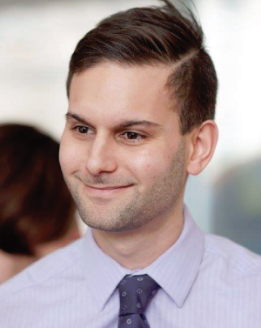Daniel Kaplan

With regards to chochma, JCUA facilitates access to wisdom and Jewish learning as a means to find empowerment through Judaism. Jewish ritual and practice enhances our ability to create a unique Jewish voice in the organizing world. From economic justice, to police accountability, to trauma care, we have woven the themes of holidays and ritual into our organizing campaigns. JCUA co-hosts a social justice Beit Midrash that focuses on Rabbinic commentary relevant to our organizing campaigns. This year we are marking Passover by organizing a community meeting focused on police accountability. By connecting the religious themes and Jewish history into our social justice organizing, we articulate the ways in which contemporary social justice struggles are inextricably linked to the Jewish community.
As a Jewish social justice organization, JCUA incorporates tzedek into its organizational fabric more strongly than any of the other propositions. Our theoretical framework centers on community organizing as the best way to apply Jewish values to effect social change. JCUA members find meaning and purpose in our work because they know that they can take action with us to strategically build on grassroots movements for racial and economic justice as Jews. For many of our members, the concept of tzedek is the primary way that identify as Jews.
I found value in Rabbi Schwarz’s conceptualization of Jews as tribal and covenantal. By and large, JCUA members and Doykeit’s community structure their commitments and actions through covenantal values like tzedek, chesed, ahavat ger and tzelem elohim. However, I think that the covenantal/tribal framework is problematic if presented as a dichotomy. Both JCUA and Doykeit advance tzedek with both tribal and covenantal frameworks. Doykeit (a Yiddish word for “hereness”) embraces the unique facets of Ashkenazi ethnic identity while simultaneously rejecting the prioritization of Jewish rights and security before/at the expense of others’. “Doykeit” itself is a core principal of the Bund. A Jewish socialist movement, the Bund rejected Jewish nationalism in favor of remaining in Europe to struggle with other repressed and marginalized people. Within both Doykeit and JCUA, one can find a growing number of people that embrace Yiddish, Hebrew, ritual observance, and ethnic identity alongside principles of solidarity with all oppressed peoples. This fusion of tribal and covenantal qualities demonstrates that Jewish community can hold both identity constructs simultaneously. In order to create movements that are as much Jewish as they are social justice oriented, the marriage of these two constructs is necessary.
In reading Rabbi Schwarz’s essay, I became aware of the extent to which my residency at Doykeit fits into the kehillah framework via a burgeoning movement of Jewish communal living spaces. I agree with Rabbi Schwarz that co-housing has significant potential for keeping Judaism relevant and innovative. Organizations like Moishe House have demonstrated this for the past decade. Doykeit would not be able to be the space it has become without the financial support of initiatives like Moishe House Without Walls and One Table.
Unlike Moishe House, Doykeit is a non-organizational communal space. We are not chartered through a larger non-profit organization. The informal nature of Doykeit has allowed for the creation of highly organic social, ritual, political and learning space. At Doykeit, we create programs and space without having to adhere to the guidelines of a larger umbrella organization. This aspect of the home fulfills an important need. Many in the Doykeit community are queer-identified, gender nonconforming, radical, and anti-Zionist. Doykeit creates a space for people whose values and identities are not represented by–or even accepted in– mainstream, affiliated Jewish spaces. Doykeit gives Jews access to kedusha through opportunities for leadership and empowerment that they are unlikely to seek out through the more conventional institutions of the organized Jewish community.
Jewish Megatrends has provided me with a valuable framework for how I understand my Jewish professional and lay commitments within the broader context of an evolving North American Judaism. JCUA and Doykeit both advance Rabbi Schwarz’s four propositions to varying degrees, and help to explain how the Jewish community can play a role in advancing a progressive vison for all of society.
Daniel Kaplan is a community organizer with the Jewish Council on Urban Affairs, Chicago’s Jewish voice for social justice. Daniel is also a resident of Doykeit, a nonaffiliated communal home with a progressive and observant Jewish orientation


